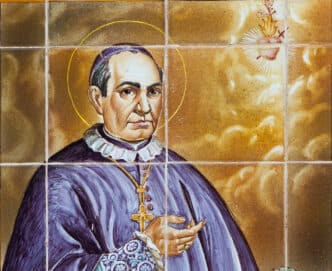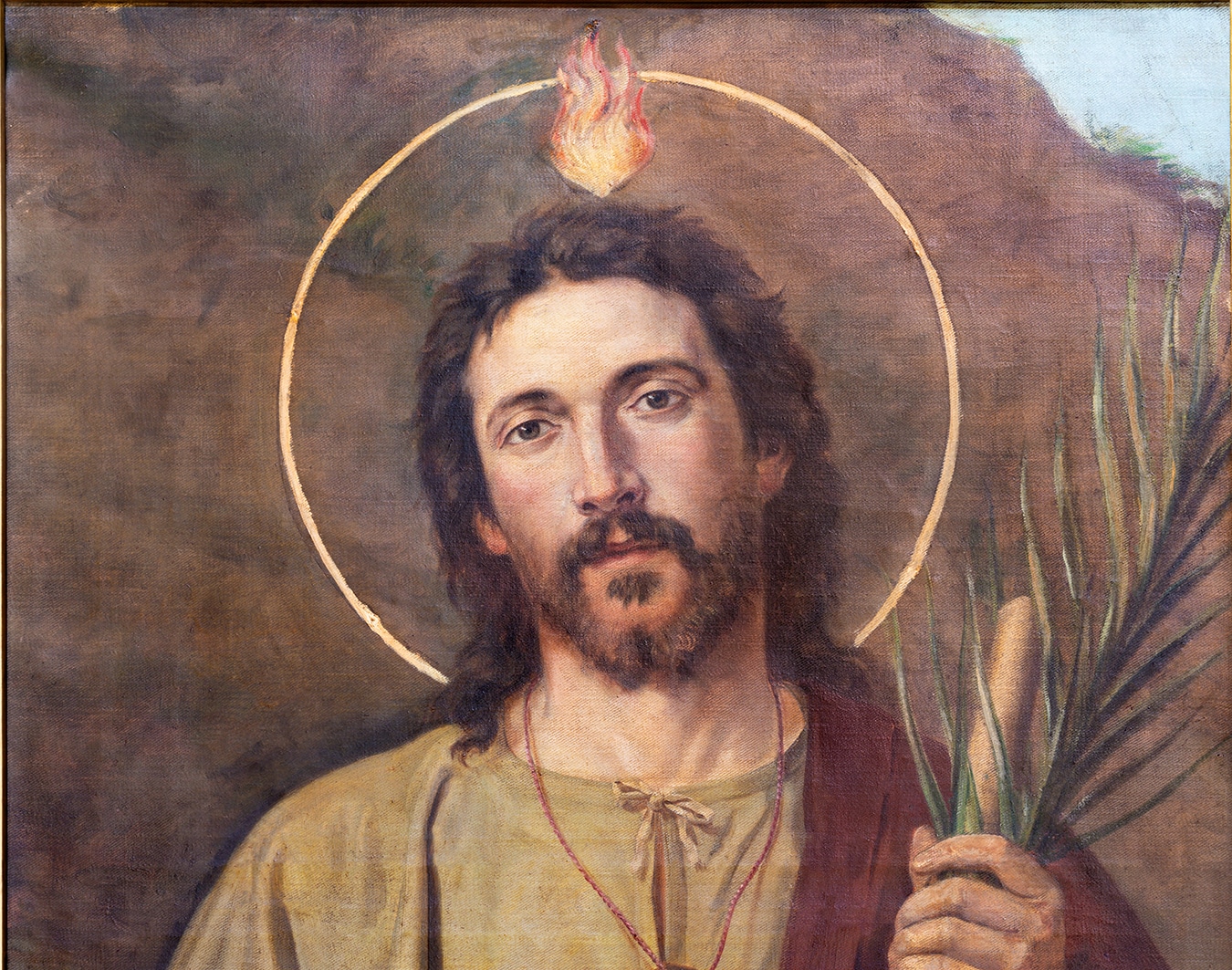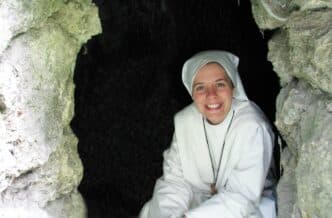St. John of Capistrano, Priest
Feast day: October 23
A Franciscan friar, St. John Capistrano was a zealous preacher of repentance who left everything in his life as a lawyer to preach the Gospel. Born in Italy in about 1385, St. John lived in a time of civil war combined with deadly plague, confusion in the Church such that there were multiple people claiming to be pope at once, and also bitter disputes within the Franciscan order itself. It was in the middle of such turmoil that St. John Capistrano strove tirelessly to reform the Church, not only through his writings but also by preaching repentance and establishing Franciscan communities throughout Europe and as far east as Russia.
An educated man who had studied law at the University of Perugia, St. John Capistrano was raised solely by his mother after the premature death of his father. It was his mother who encouraged him to get educated. As a magistrate, a civil quarrel caused him to be imprisoned, and it was in prison that St. John had a conversion in which he heard the call to become a friar in the Franciscans of Strict Observance. Upon being released, he was ordained to the priesthood, after his marriage — which had never been consummated — was annulled. In an effort to restore an understanding of Catholic doctrine, he was instrumental in building up the Franciscan Observants, a strictly ascetic group which separated from the Conventual Franciscans, although it has reunited with the Order of Franciscan Minors today.
The preaching style of St. John Capistrano focused on repentance, which was unpopular at his time and not always well received. Nevertheless, his dynamism was so intriguing that many wanted to listen to him. The largest churches at that time could not hold the crowds which came to hear him. Instead, St. John preached in the public squares, and all business would stop so that everyone could listen to his preaching. At one time, two thousand sick people were brought to him so that he might make the sign of the cross over them; such was his reputation for healing.
Collaborating with St. Bernardine of Siena and St. Collette, he helped to reform the Franciscans to find a middle ground between lax and an overly austere practice of the faith. He defended the rights of emerging Third Order Regular Franciscan communities. A student of St. Bernardine’s in theological training, St. John Capistrano shared a devotion to the Holy Name of Jesus and propagated this devotion despite being accused of heresy. The commission of cardinals acquitted him and other Franciscan Observants of heresy after listening to St. John’s defense. It was so impressive that he then was frequently employed as a papal legate and as an inquisitor by Popes Eugene IV and Nicholas V against heretical groups.
At 70 years of age, St. John Capistrano was commissioned by Pope Callixtus III to take part in deliberations in Frankfurt on forming a crusade against the Turkish threat to eastern Europe. St. John helped raise and lead the army himself that lifted the Turkish siege of Belgrade. Shortly thereafter, he died of the bubonic plague in Croatia.
In the New World, St. John Capistrano had a mission in southern California named after him. Built by Spanish Franciscan missionaries in 1776, this mission is named San Juan Capistrano, and the stone church there is not only the oldest building still in use in California, but also the only surviving structure that has documented proof that St. Junipero Serra celebrated Mass there. A second San Juan Capistrano mission is in San Antonio, Texas.
Reflection
Oh Lord, give me a faith strong enough to hear your voice as to where you want me to go next. May I be open to change and spread the joy of the Gospel everywhere I go.
Prayer
O God, who raised up Saint John of Capistrano
to comfort your faithful people in tribulation,
place us, we pray, under your safe protection
and keep your Church in everlasting peace.
Through our Lord Jesus Christ, your Son,
who lives and reigns with you in the unity of the Holy Spirit,
God, for ever and ever.







